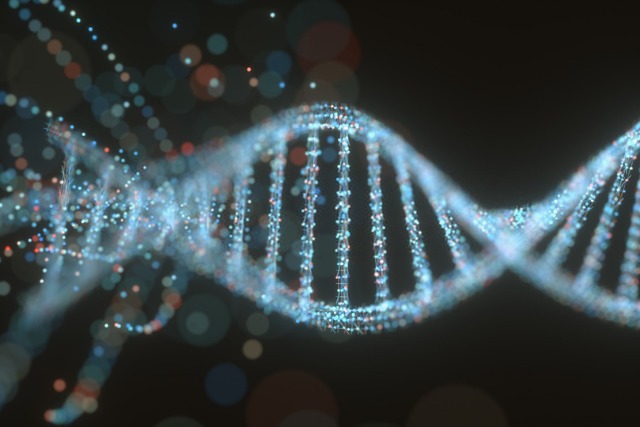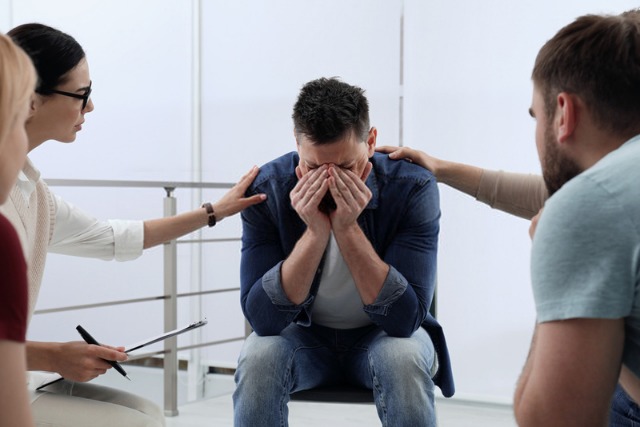My name is Jimmy, I am 33 years old and have been suffering from panic attacks for many years.
It was only in 2020 that I learned more about this disorder, and it was finally diagnosed by a psychiatrist after I learned about some cases on the Internet and contacted people with similar symptoms. It is one of the acute anxiety disorders.
Recently, I suddenly relapsed, so I decided to record the ins and outs of the disease and experience from today, hoping to let more people see it so that we can suffer less.
First, let me explain the symptoms of panic attacks as a disease, this is one of the key factors to confirm the diagnosis. My symptoms all come on after falling asleep or when I am about to fall asleep, and so far I have had more sudden attacks after falling asleep (unconscious).
I’ve listed all the symptoms below so that you can look at them carefully. I’ll write out my most severe symptoms for your reference and comparison.
- Near-death feeling (general feeling). I feel suddenly uncomfortable and will die suddenly in the next second if I don’t sit up from bed or jump up.
- I suddenly felt chest tightness in my heart area and felt my heart stop beating. I felt like I was going to faint and die suddenly.
- My breathing is blocked or my throat is constricted and blocked, I feel like I’m not breathing or I can’t breathe, and I feel like I’m suffocating and will die soon. (This symptom I think is the most unpleasant, the body will quickly gasp for air so that I do not lack oxygen).
- It may cause numbness in the hands or feet, headache, and dizziness, or loss of sensation in certain areas, or unexplainable discomfort.
- It may cause a decrease in oxygen saturation (hypoxia), an increase in blood pressure, and a faster heart rate (in the range of 100 to 150).
- I feel that I am suddenly out of control, heading in a bad direction. And I feel a persistent fear, which can be accompanied by a sense of falling, a sense of loss and helplessness, a feeling of being finished and irreversible. (This symptom is usually the initial stage).
These are some of my feelings because I think I am a more serious patient, this disease I found in 2018 is getting worse. Sometimes I could hardly sleep and I was afraid to sleep. Because at that time I did not know that there was such a disease in the world, I always felt that I would die suddenly one day, and I lived in fear of depression every day.
Because I did not understand the cause of this disease, I suffered one of the most painful torments of my life for a long time afterward. I received a misdiagnosis at that time, which has left me with permanent sequela affecting me for the rest of my life.
The next step is to explain some principles associated with this disorder.
Since I am not a professional doctor, the pathogenesis of this disease has not been understood. We, neurology and psychiatry, also do not have a perfect answer to explain the detailed mechanism of the pathogenesis of this disease. Perhaps it is a very complex mechanism, the medical science is not yet developed enough to explore the specific details of the cause of the attack of this disease.
Biological perspective
Dysfunction of epinephrine and pentazocine neuroreceptors, decreased sensitivity of benzodiazepine receptors, neuroendocrine dysfunction, altered local cerebral blood flow, and decreased permeability of the blood-brain barrier. Decreased binding of gamma-aminobutyric acid and benzodiazepine receptor complex. Abnormalities in brainstem and carbon dioxide chemoreceptor sensitivity increased sodium lactate levels. Abnormalities in the hypothalamic-pituitary-adrenal axis system.
Genetic factors
The co-morbidity rate for first-degree relatives is 15%, compared to 5% for the general population. Monozygotic twins have a 5% homozygosity rate and dizygotic twins have a 2.5% homozygosity rate.

Social psychology factors
The human behavioral theory suggests that panic attacks are realistically conditioned reflexes acquired in particular circumstances and are a fear response. The psychodynamic view is that panic attacks are a subconscious response to a mental window in childhood, triggered by a specific neurophysiological pathway as a stressful life event.
Many people will wonder why the heart and breathing become so uncomfortable during an attack.
The biology of panic attacks, which can lead to panic attacks and shortness of breath, is very simple: the human brain works at high speed during fear and requires a lot of oxygen and energy, at which point the heart and lungs naturally work at high speed to get oxygen and transport it to where it is needed. So our breathing will speed up and our heartbeat will spike, which is a normal reaction of the organism.

Why I relapsed?
First, I can be sure of one thing, that is, psychotropic drugs can indeed treat this disease, but the disadvantage is that the drugs are likely to treat the symptoms but not the root cause. I stopped taking this medicine for more than 2 months because I need to prepare for pregnancy, and it affects sperm.
The first month after stopping the medication I had nausea, dizziness, and vomiting as a side effect of drug withdrawal, and panic attacks happened again within 1 month after this symptom. But at the beginning of the second month, that is, on January 19, for some reason I suddenly had panic attacks in 3 consecutive days, and I had a sense of near-death after going to bed.
Because I believe that 90% of people received the misdiagnosis for this disease, and they spend a lot of time and money to see this disease, and it all turns out to be wrong. So if you are happy to share your story, it is best to describe the trial and error experience as well.
Misdiagnosis is a very scary thing. I was misdiagnosed and changed my life by having a surgery that I should not have had, leaving permanent sequela. This event suddenly turned my life from good times to bad, from optimism to depression.
This disease in front of the public is still little attention and is not considered a popular disease. So I think if you can empathize with this article you will feel more vicarious and comforting, being understood is the most important kind of energy needed for this disease.
N.B.: If you want to confirm that you are also having a panic attack, one of the things you need to do is to go for a complete examination of the whole body to rule out organic diseases (cardiac, respiratory, brain, neurological and endocrine, etc.). This is a very important point.

